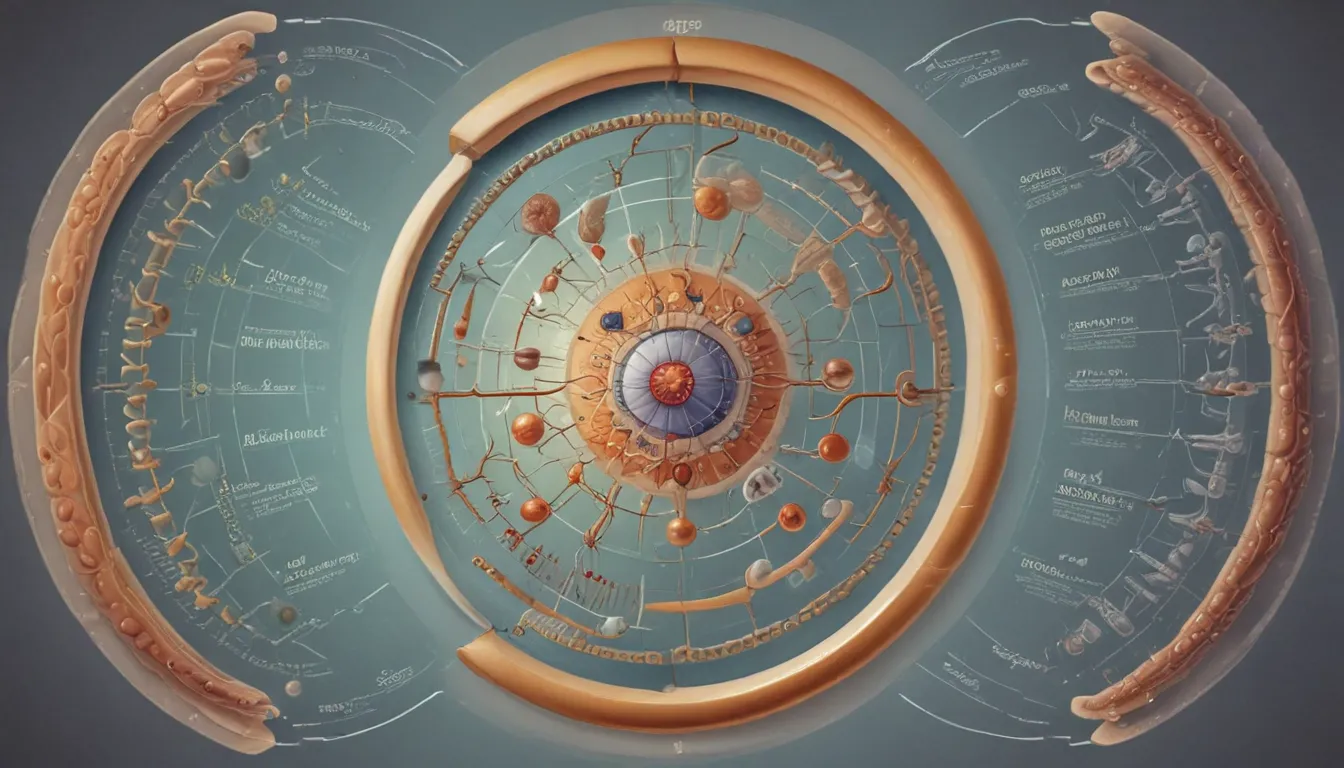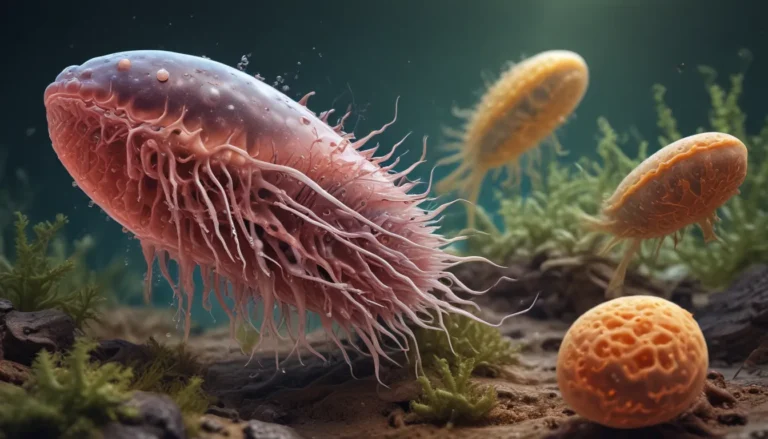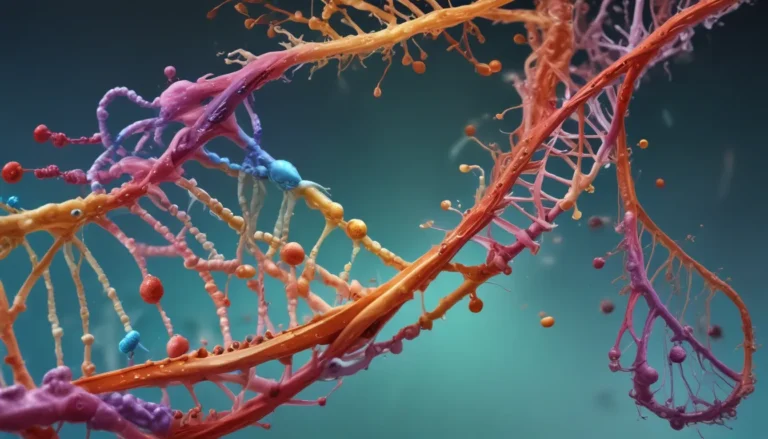A Note About Images: The images used in our articles are for illustration purposes only and may not exactly match the content. They are meant to engage readers, but the text should be relied upon for accurate information.
Are you intrigued by the intricate dance of cell cycle progression? Do you wish to unravel the mysteries of this fundamental biological process that governs the growth, development, and reproduction of all living organisms? If so, you’re in for a treat! In this article, we will uncover 14 mind-blowing facts about cell cycle progression that highlight the complexity and elegance of this biological phenomenon. From the regulatory mechanisms that control each phase of the cell cycle to the potential implications for human diseases, these facts will provide a deeper understanding of the fascinating world of cell division.
The Intricacies of the Cell Cycle Progression
The cell cycle consists of distinct phases, and errors in its regulation can have dire consequences. Understanding this process is crucial for developing targeted cancer therapies and maintaining our health. Stem cells, with their unique properties, play a vital role in tissue regeneration, aging, and potential therapeutic interventions.
The Cell Cycle Phases Unraveled
During the cell cycle, cells go through specific phases, including interphase, mitosis, and cytokinesis. Each phase has its own unique characteristics and plays a crucial role in the seamless process of cell division.
The DNA Replication Marvel
One of the key events during the cell cycle is DNA replication, which occurs during the S phase. This ensures that each new daughter cell receives an identical copy of the genetic material, essential for maintaining genetic integrity.
Checkpoints: Guardians of Cell Cycle Integrity
Checkpoint mechanisms monitor the progression of the cell cycle, ensuring that each phase is completed accurately before the cell proceeds to the next stage. These mechanisms act as safeguards against errors and abnormalities in cell division.
Masters of the Cycle: Cyclins and CDKs
Cyclins and cyclin-dependent kinases (CDKs) are the key regulatory proteins that control cell cycle progression. Their levels fluctuate throughout the cycle, activating specific molecular events that drive the process forward.
The Critical Decision-Making Point: G1 Phase
The G1 phase serves as a critical decision-making point for cells, where they decide whether to enter the cell cycle and proceed with division or exit into a non-dividing state. This decision is influenced by a variety of internal and external signals.
Guardians Against Cancer: Tumor Suppressor Genes
Tumor suppressor genes, such as p53, play a crucial role in maintaining the stability of the cell cycle. They act as guardians against the progression of damaged or abnormal cells, preventing cancer development.
Implications and Applications of Cell Cycle Progression
Errors in cell cycle regulation can lead to cancer, highlighting the importance of understanding this process. Different cell types have varying cell cycle lengths, and stem cells possess unique properties that are essential for tissue regeneration and controlled division.
Cell Cycle Abnormalities and Genetic Disorders
Cell cycle abnormalities can contribute to genetic disorders such as Down syndrome and Turner syndrome, resulting from disruptions in the cell division process. Understanding these abnormalities is crucial for disease prevention and treatment.
Influence of External Factors on Cell Cycle Progression
External factors, including environmental cues and signals such as growth factors, hormones, and nutrient availability, can impact cell cycle progression. These factors influence the timing and rate of cell division, shaping cellular behavior.
Terminal Differentiation: Conservation of Cell Cycle
In certain tissues, some cells permanently exit the cell cycle and enter a state of terminal differentiation. Neurons in the brain, for example, cease to divide once they have reached their mature form, highlighting the diverse outcomes of cell cycle regulation.
The Role of Cell Cycle in Embryonic Development
The precise regulation of the cell cycle is essential for embryonic development, where cell division and differentiation occur in a coordinated manner to form complex structures and organs. Understanding this process is crucial for fostering healthy growth and development.
Unlocking the Secrets of Aging and Regeneration
Studying the cell cycle provides valuable insights into aging and tissue regeneration, offering potential avenues for therapeutic interventions. By understanding how cells divide and renew, researchers can explore new possibilities for combating age-related diseases and promoting tissue repair.
Conclusion: Unraveling the Marvels of Cell Cycle Progression
The journey through the intricacies of cell cycle progression unveils the complexity and elegance of this fundamental biological process. From its regulatory mechanisms to its implications for human health, the cell cycle continues to captivate researchers and expand our understanding of life itself.
As we continue to delve deeper into the complexities of cell cycle progression, we pave the way for groundbreaking discoveries that could revolutionize our understanding of diseases, aging, and regeneration. The cell cycle stands as a testament to the incredible marvels of biology, captivating researchers and enthusiasts alike with its mysteries.
Embrace the Wonder of Cell Cycle Progression
Are you ready to delve deeper into the captivating world of cell cycle progression? Explore the marvels of biology and unravel the intricate dance of life at the cellular level. As you journey through the fascinating realm of cell division, let your curiosity guide you towards new discoveries and insights that enrich your understanding of the microscopic world within us.
FAQs: Your Questions Answered
- What is the purpose of cell cycle progression?
-
The cell cycle progression is essential for cell growth, development, and reproduction, ensuring proper division and maintenance of cellular integrity.
-
How is DNA replicated during the cell cycle?
-
DNA replication occurs during the S phase, where DNA strands separate, serving as templates for the synthesis of new complementary strands.
-
What are the key regulators of the cell cycle?
-
The cell cycle is regulated by proteins such as cyclins and cyclin-dependent kinases (CDKs), controlling checkpoints and ensuring proper progression.
-
What happens if the cell cycle is disrupted?
-
Disruption of the cell cycle can lead to abnormalities such as uncontrolled cell growth (cancer) or cell death, emphasizing the importance of proper regulation.
-
Are there diseases associated with cell cycle dysfunction?
- Yes, diseases like cancer often result from cell cycle dysfunction due to mutations in genes regulating cell division.
Our Commitment to Quality Content
At the core of our content lies a dedication to delivering trustworthy and engaging information that enriches your knowledge and fuels your curiosity. Each fact is contributed by real users like you, ensuring diverse insights and reliable information. Our editors meticulously review each submission to maintain the highest standards of accuracy and authenticity, guaranteeing that the facts we share are not only fascinating but also credible. Trust in our commitment to quality as you explore and learn with us.
Keep exploring the wonders of biology and unraveling the mysteries of life’s intricate tapestry. Dive deeper into the realms of cell cycle progression and DNA damage response, expanding your understanding of the microscopic world within us. Join us in celebrating the marvels of biology and unlocking the potential for groundbreaking discoveries that shape our understanding of life.
In this rewritten article, we have explored the fascinating world of cell cycle progression, unraveling its intricacies and implications for human health. From the regulatory mechanisms that govern cell division to the role of stem cells in tissue regeneration, each fact sheds light on the complexity and elegance of this fundamental biological process. Join us on this journey of discovery as we delve deeper into the marvels of cell cycle progression and unlock new possibilities in the field of biology.





